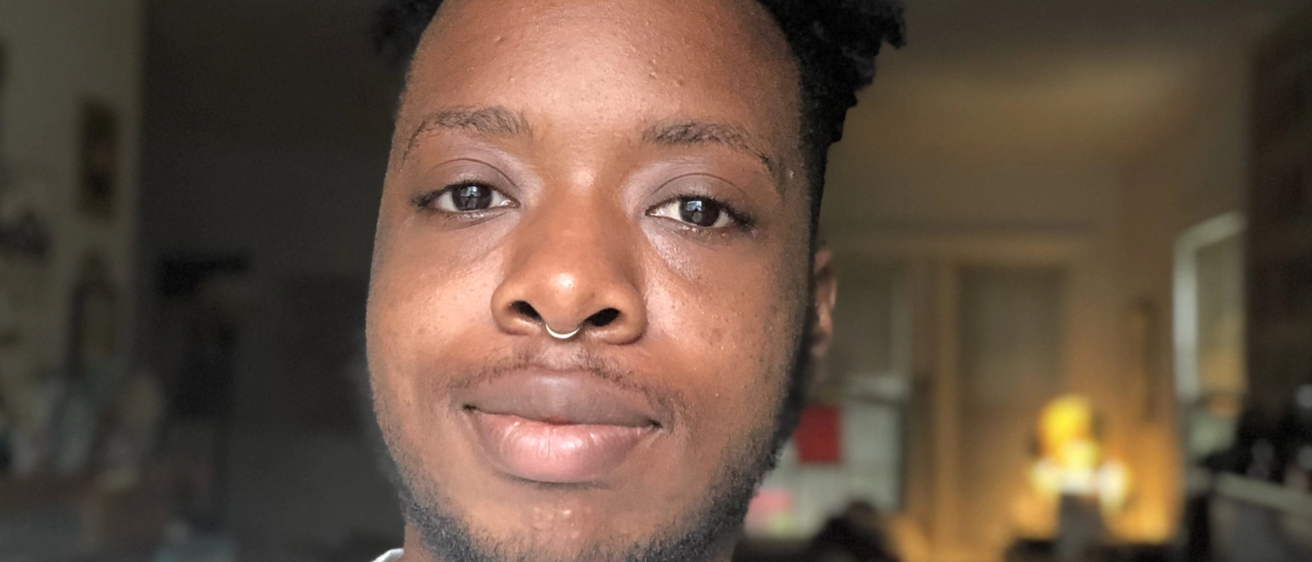This Friday's Black Curators' Roundtable is a first chance to hear some of the issues that will be central to the 2019–20 Obermann Humanities Symposium, What Can Museums Become? Led by trans poet, artist, curator, and UI alumnus Anaïs Duplan (pictured above), the event gathers three others curators to discuss their practices and trends.
Facilitated by Duplan, founding curator for the Center for Afrofuturist Studies, a residency program for artists of color located at PS1, and author of the forthcoming book of essays on black digital media artists, Blackspace: On the Poetics of an Afrofuture, the roundtable also features:
- Eileen Isagon Skyers: Co-founder of a migratory gallery concept called HOUSING, Skyers has worked with The Whitney Museum, David Zwirner, Rhizome, and the New Museum. Her moving image work has been exhibited nationally and internationally, and her first book, Vanishing Acts, was published by LINK Editions in 2015.
- Gee Wesley: A curator born in Monrovia, Liberia, and based in New York, Wesley has held positions as Program Director at Recess; Curatorial Fellow at SculptureCenter; Curatorial Fellow at ICA, Philadelphia; and faculty in the Curatorial Practice program at MICA.
- Gia M. Hamilton: A Treme-based curator, speaker, and scholar whose projects center on land, labor, and cultural production, Hamilton's recent projects include co-curating the Atlanta Biennial in 2016; developing The Urban, a space at Art Basel with Welcome to the Afrofuture; leading development of the Joan Mitchell Center artist residency program from 2011–2018; and serving as Executive Director and Chief Curator at the New Orleans African American Museum in 2019.
"I'm interested in professional challenges specifically placed by black contemporary art curators," says Duplan of what he hopes to discuss with the other participants. "I'm interested in setting-specific challenges. I also wonder whether folks have noticed changes in the last 5 years, say, in the field for curators of color and what we might attribute that to. I wonder whether it's been easier or harder to build an audience around the artists and works being curated by these folks. Also, as a curator who works specifically with artists of color, I wonder if the other curators identify with that or feel that their practices are broad enough to apply to the practices of artists across racial/ethnic lines."
The roundtable will be held October 28 at 7:00 pm at the Iowa City Public Library and is co-hosted by by The Stanley Museum of Art and the Center for Afrofuturist Studies at PS1. Joyce Tsai (Stanley Museum of Art and School of Art & Art History), who is co-directing What Can Museums Become? with Jen Buckley (English), says this group is exciting because they are working in such different spaces, including museums, performance-based spaces, and residency-based spaces. "They bring a range of experiences, including as working artists," she says, adding that they will likely speak to "how we make space for Black voices in gallery spaces that are so dominated by white male voices."
The landscape of curatorial practices is changing profoundly right now, says Tsai. How one trains, where curators work, and the reliance on freelance curators is all affecting what is shown, who sees it, and how stories are told.
